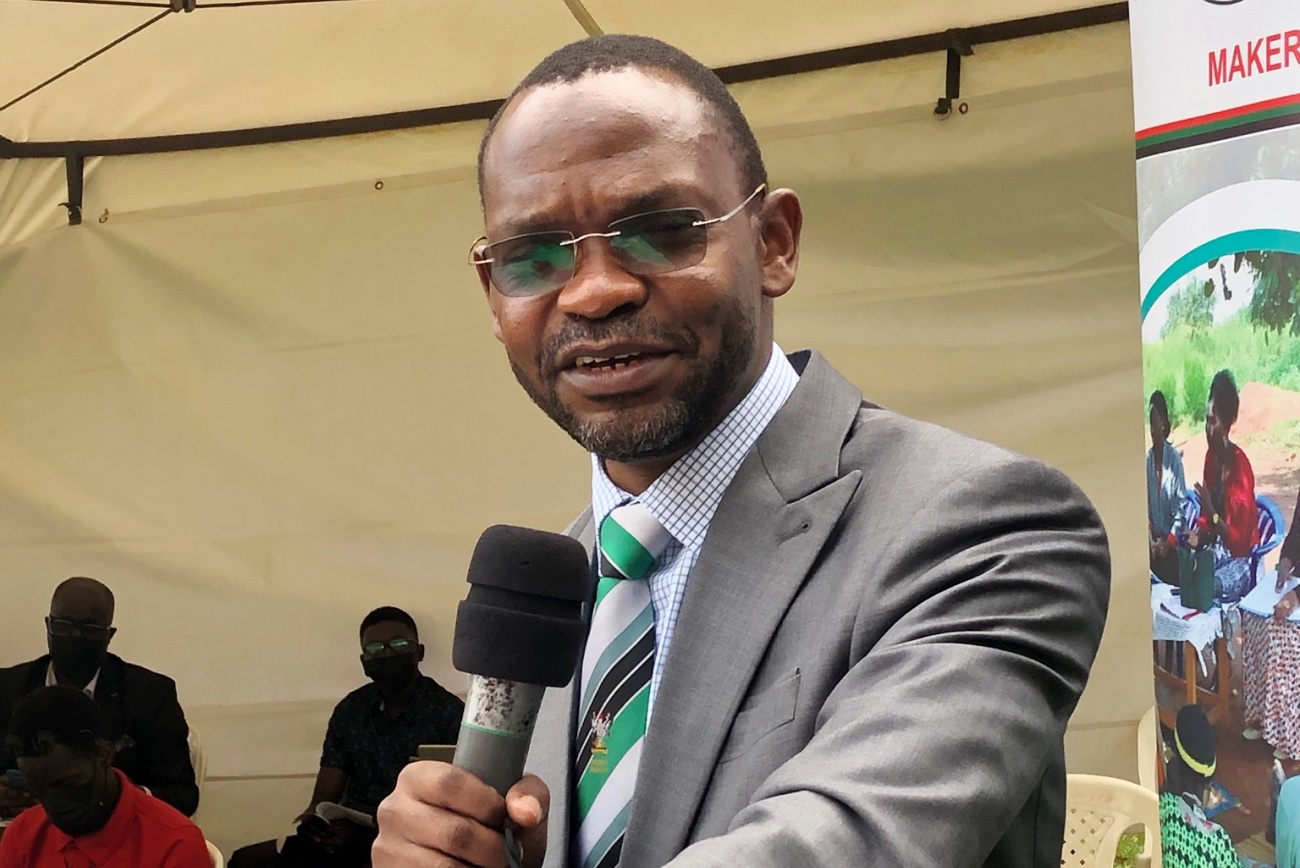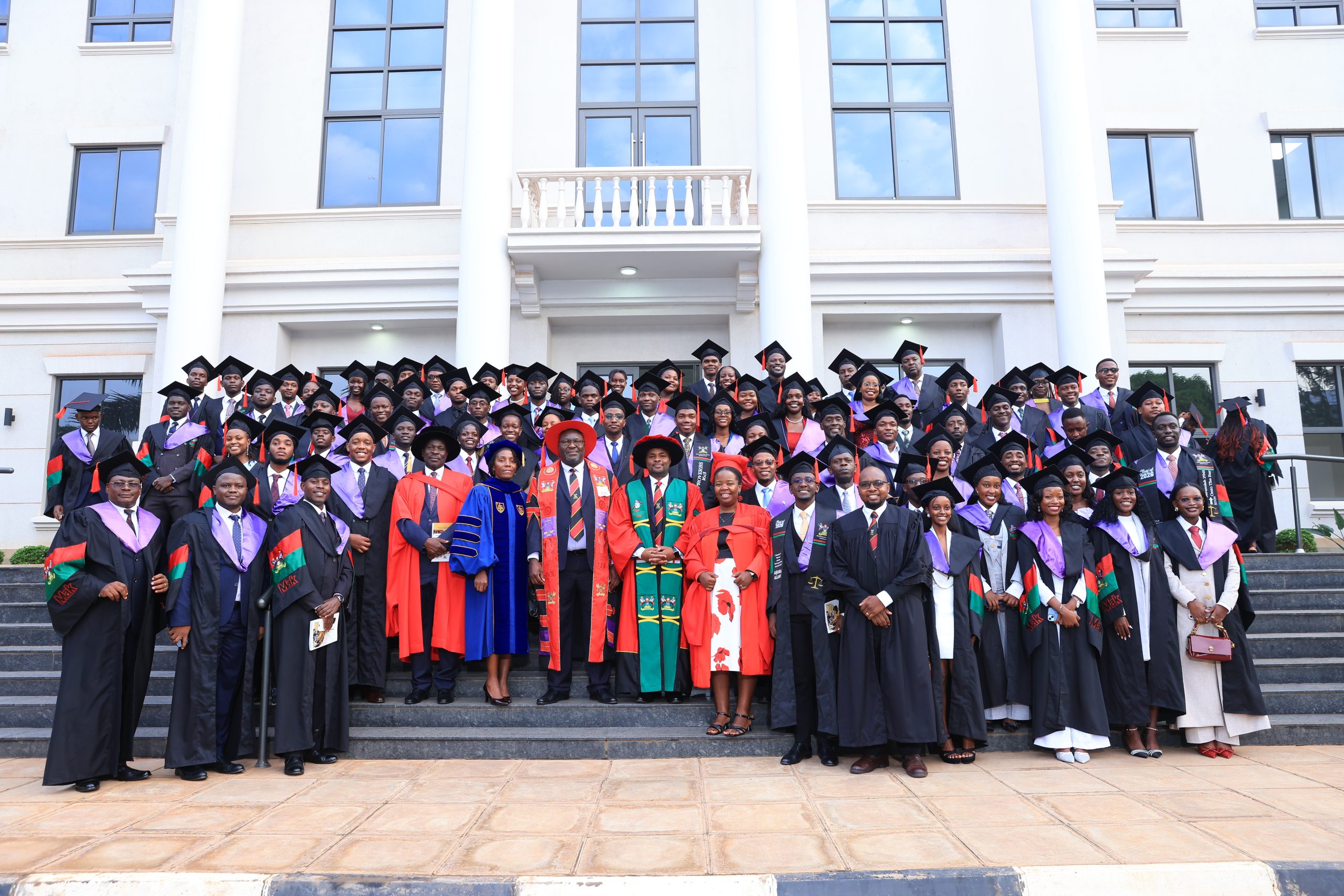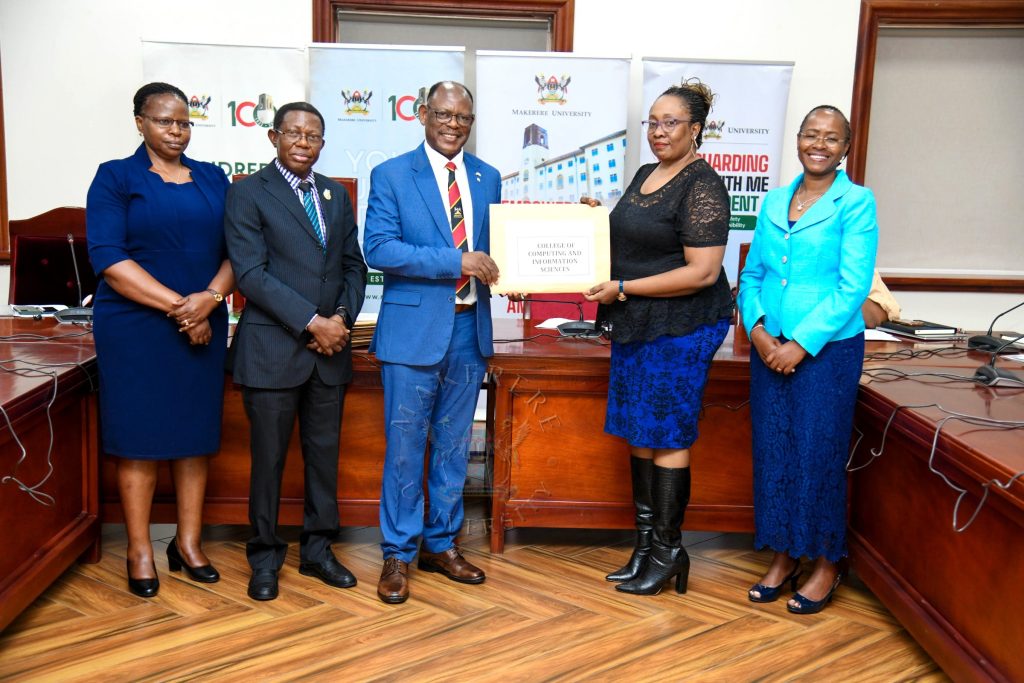HURIPEC Convenes Stakeholders To Discuss Militarization, Sustainable Growth & Peace In Uganda
The Human Rights and Peace Centre (HURIPEC) hosted a Multi Stakeholder engagement on militarisation, sustainable growth and peace in Uganda. The event was held on Wednesday, 17th November 2021 to discuss the question, ‘Is the growing militarization of Uganda’s civilian institutions necessary for development and compatible with human rights and democracy?’ This was hosted under the auspices of HURIPEC’s collaborative research project – Security, Peace and Development in partnership with the Centre for Resolution of International Conflicts (CRIC) at the University of Copenhagen, Denmark.

Established in 1993, HURIPEC is a semi-autonomous centre and department under the School of Law (SoL), Makerere University. HURIPEC is an academic teaching unit that oversees the teaching of human rights and human rights related courses. The centre is also a research and activist engine, aiming to generate human rights conscious law graduates sensitive about relevant human rights, peace and governance issues in Uganda.
The multi-stakeholder engagement was an opportunity to explore the role of the Uganda People’s Defence Forces (UPDF) In the country’s development agenda. Panelists presenting at the event included academia, civil society and the UPDF to discuss the nature, extent and rationale of the UPDF’ involvement in development. There has been an increasing role and appointment of UPDF to lead institutions in agriculture, fisheries, health, roads and construction, police among others.

In her welcome remarks, Dr. Zahara Nampewo – Director, HURIPEC explained that ‘we are seeing an increasing role of the security sector in Uganda’s development. However, as we recognized at the start of the project in 2019, security in development is profoundly under-examined, both theoretically and empirically in the larger development context’. The project therefore is undertaking to provide a deeper understanding of the role of security actors, both within Uganda and regionally in development.
Dr. Nampewo stressed the importance of partnerships for successful implementation of the project and appreciated their partners at CRIC for this worthwhile academic engagement. She also thanked the Principal – SoL, Makerere University Management for the support extended to HURIPEC in implementing the project. She also thanked the HURIPEC team for organizing the event and to all the participants who attended.

Speaking at the event, Prof. Christopher Mbazira – Principal, SoL welcomed Prof- Umar Kakumba – DVC Academic Affairs, Makerere University who represented the Vice Chancellor. He thanked the University Management for the support accorded to SoL. He also thanked all the participants for honoring the invitation to attend the engagement. Prof. Mbazira highlighted the importance of the discussions at the event owing to the inclusion of Security and Governance as a key Programme of the National Development Plan (NDP) III.
He reiterated that there has been limited research on security and its effect on development thus the SoL is compelled to study this area to contribute evidence on the role of the Military on development. Prof. Mbazira highlighted that while there is a lot of data on the militarisation of police, there is limited research regarding military in fisheries, Operation Wealth Creation (OWC), revenue collection among others. The Principal welcomed the partnership with CRIC, thanking Prof. Ole from CRIC who attended the meeting.
Prof. Ole Wæver – CRIC, University of Copenhagen said that a lot of research has been done together with HURIPEC and expressed their happiness to continue the partnership considering the results and data produced.

Ms. Ann Sophie Oxlund – 1st Secretary, Royal Danish Embassy, Uganda congratulated the HURIPEC and CRIC for the work done to understand the intersection of military, governance, development and democracy. She noted that it is important for the government to respect democracy, freedom of expression and human rights. She also reiterated that DANIDA is happy to support the project and looks forward to the results of the research conducted; the academia and civil society should continue to engage the military and other security agencies on how to get a better understanding of what is happening in Uganda.
The engagement was officially opened by Prof. Umar Kakumba – Deputy Vice Chancellor/Academic Affairs, Makerere University who represented the Vice Chancellor. He thanked SoL and HURIPEC for organizing the event to discuss the important issues pertaining to security and development.

Prof. Kakumba noted that ‘development is a key issue for a country but it can’t be achieved without peace and security’ He thanked the organisers for inviting the security agencies to be part of the discussions. The Makerere University Strategic Plan is premised on the role of Makerere as a leader in knowledge generation for societal transformation and thus the discussions here contribute to knowledge generation and ranking of the university, the Deputy Vice Chancellor highlighted.
He also noted that HURIPEC is one of the flagship units for Makerere University for research and publications directly contributing to the university’ ranking. Prof. Kakumba further noted that Makerere is well-position to provide policy advice an contribute to important conversations for the country.

He welcomed the support from the Royal Danish Embassy and partnership with CRIC. He thanked Prof. Mbazira and colleagues for taking Makerere University out of the Ivory Tower and contributing to national development.
Panelists presenting at the event included: Ms. Sarah Bireete – Director, Centre for Constitutional Governance, Major General Henry Matsiko – National Political Commissar, UPDF, Brigadier General Felix Kulaigye – Director Mindset Change, OWC, Prof. Fredrick Jjuuko – SoL, Prof. Sallie Simba – Department of Political Science, College of Humanities and Social Sciences. The moderator was Mr. Charles Odongtho.


Some of the issues arising from the presentations and discussions included:
- As a country we do not know whether there can be change of government without involvement of the army.
- Citizens have to speak freely and hold leaders to account.
- There is need to define the role of the army in engaging civilian institutions.
- Militarisation is derogatory word.
- The army has been assigned to undertake the tasks because civilian managers have failed in some cases
- The involvement of the army in national development shouldn’t be an issue to cause anxiety.
- Lessons are present for Uganda as seen from the advances by the ‘Asian Tigers’ where the army has greatly contributed to national development.
- The nation must learn from the circumstances that led to 1966 attack of the Lubiri nd more recently in 2017 attack of the Rwenzururu Palace by the army otherwise the same mistakes will be repeated.
- The institutions like Parliament have abdicated their role to hold army to account.
- There is ‘civilianization’ of the military rather than ‘militarisation’ of society
- The meeting ended with calls for an understanding of the exit strategy of the army’s involvement in civilian works and the implication of military involvement on democracy, peace, security among other sectors. There is also the need to understand how to harness the UPDF as a resource for development in Uganda. ‘How do we work together amicably?’Dr. Zahara Nampewo closed the meeting and thanked all the participants and panelists for the presentations, discussions and attending the engagement. She reiterated that ‘this is only a scratch of the surface and we hope to host more of these conversations’



